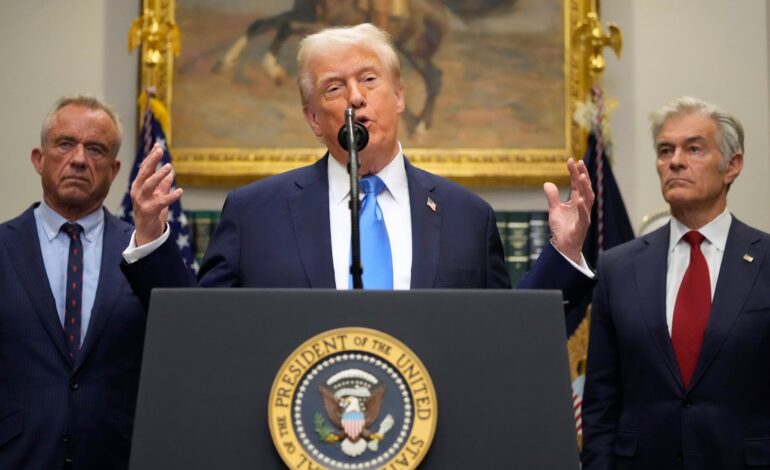Trump Proposes Direct Payments to Replace Obamacare Subsidies

President Donald Trump announced on Sunday his plan to replace subsidies under the Affordable Care Act (ACA) with direct cash payments to Americans. Speaking at Palm Beach International Airport, Trump expressed confidence in his proposal, stating that discussions with Democrats are already underway. The initiative aims to eliminate federal tax credits and instead provide individuals with funds to cover their health-care expenses.
Trump emphasized the appeal of this approach, claiming, “People love it.” Although he did not disclose which Democrats he has engaged with, he indicated that the funds would be accessible for purchasing health insurance. “If it gets approved, we’re going to take the money, we’re going to pay it back to the people of our country to go out and buy health insurance,” Trump said. He added that the money would be “locked,” ensuring it could only be used for health insurance purchases, rather than other expenses.
Democrats have long advocated for maintaining enhanced ACA subsidies, which are set to expire at the end of the year. Approximately 90% of the 24 million individuals enrolled in the ACA marketplace currently benefit from these tax credits. The Inflation Reduction Act of 2022 extended these enhancements through 2025, allowing subsidies for individuals earning over 400% of the federal poverty level, and capping premiums at no more than 8.5% of their annual income.
Trump’s recent federal funding bill did not include an extension for these ACA subsidies, which help offset monthly premiums for insurance companies. “The insurance companies are making a fortune,” he stated, criticizing their financial practices while asserting that they are not adequately returning value to consumers.
The Senate is expected to vote on the extension of ACA subsidies by mid-December. Meanwhile, members of the House Ways and Means Committee have expressed support for codifying Trump’s proposal. According to POLITICO, the committee is drafting a bill that would redirect health insurance subsidies directly to individuals, allowing ACA enrollees to receive a portion of their federal assistance in their health savings accounts (HSAs).
Critics have raised concerns regarding the potential impact of Trump’s plan on health care costs and coverage types. Gerald Anderson, a professor at the Johns Hopkins University Bloomberg School of Public Health, warned that older Americans and those with pre-existing conditions could be significantly affected. He explained that the ACA was designed to ensure that insurance packages on the exchange provided valid services.
Furthermore, the Kaiser Family Foundation (KFF) reported that if enhanced ACA tax credits expire, enrollees could see their premiums rise by an average of 114% by 2026. Additionally, health insurers are projected to increase their charges for coverage on ACA marketplaces by 26%.
As the political landscape evolves, the implications of Trump’s direct payment proposal remain to be seen, with millions of Americans potentially impacted by any changes to the current health care system. The outcome of these discussions and legislative efforts will shape the future of health insurance in the United States.






